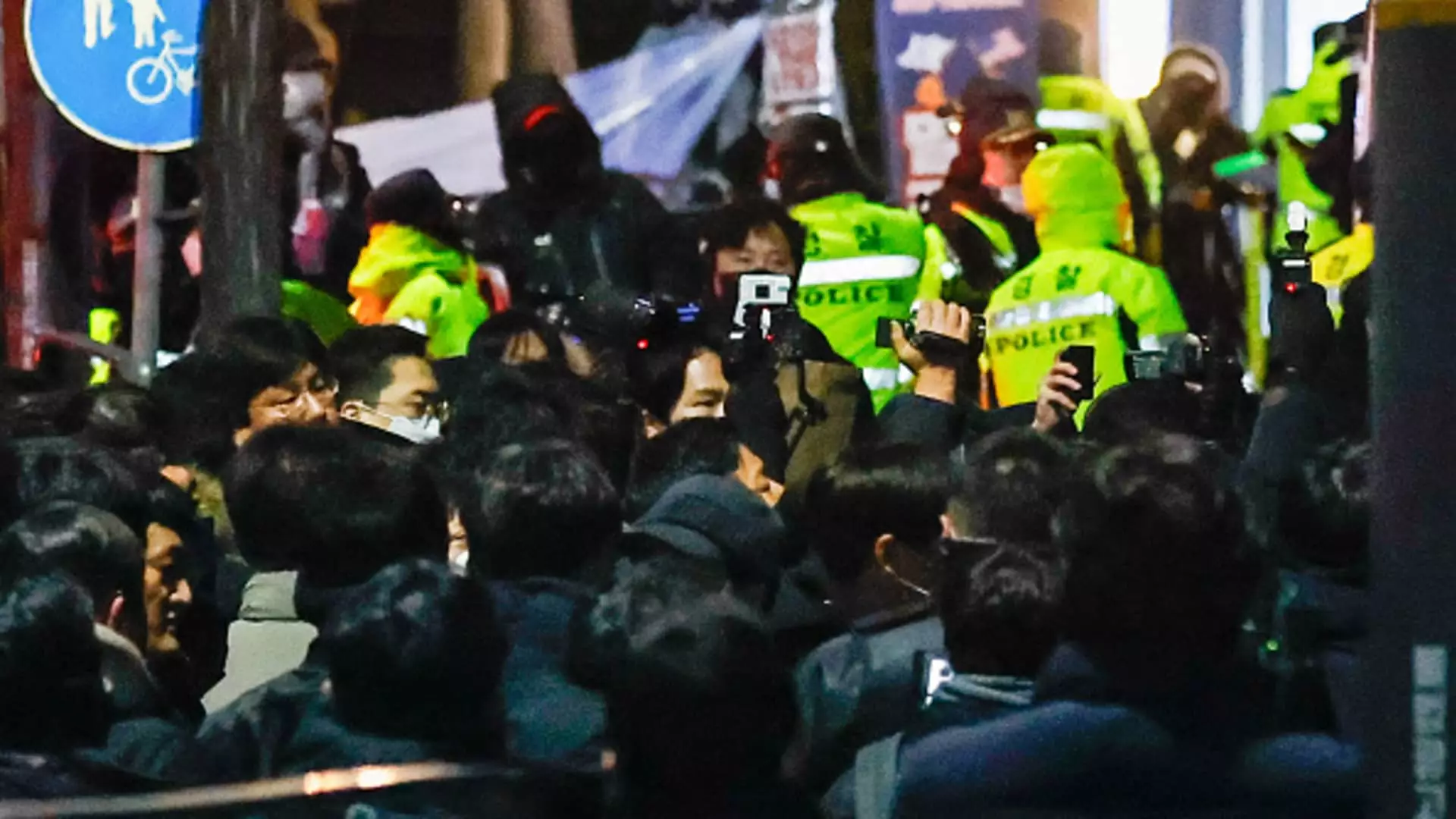The recent arrest of South Korean President Yoon Suk Yeol marks a pivotal moment in the nation’s political landscape, as it is the first time a sitting leader has faced such legal action. The arrest, orchestrated by the Corruption Investigation Office for High-Ranking Officials, reflects deep-seated issues of governance currently plaguing South Korea. This unprecedented event not only places Yoon at the center of a national crisis but also raises significant concerns about the rule of law, political stability, and potential ramifications for South Korea’s democratic institutions.
Yoon’s second arrest attempt comes after a failed bid on January 3, which was thwarted by his own Presidential Security Service. The involvement of approximately 3,000 police officers in the second operation underscores the seriousness of the situation and the lengths to which the state apparatus has gone to apprehend the president. Yoon’s claim that the “law of the country has collapsed” and his assertion that the investigation is illegal indicate a leader unwilling to concede to the authorities. His call to appear before the CIO in order to “prevent unpleasant bloodshed” adds a layer of complexity to the narrative, suggesting that both Yoon and the investigatory body operate in a charged atmosphere, where personal safety and state authority are deeply intertwined.
In the wake of Yoon’s arrest, the South Korean stock market’s tepid response speaks volumes about investor sentiment and economic stability. With the Kospi index rising a mere 0.21% while the smaller Kosdaq index saw a slight decline, it suggests uncertainty lingers among traders. Furthermore, the weakening of the South Korean won against the U.S. dollar and the increase in yields on 10-year bonds present warning signs that this political turmoil may have lasting implications for economic confidence. Investors often seek stability, and the arrests of high-ranking officials can lead to volatile environments, impacting foreign investments and trade.
Yoon faces serious charges, including insurrection, stemming from his controversial attempt to declare martial law, the first of its kind in over 40 years. His rationale—purported threats from North Korean forces—evokes memories of historical tensions on the Korean Peninsula. The response from lawmakers, who swiftly voted down Yoon’s declaration and initiated impeachment motions, reflects a collective pushback against not just his authority, but also against perceived authoritarianism. The Constitutional Court’s upcoming trial adds a layer of legal scrutiny to Yoon’s actions, potentially setting a precedent for future executive accountability in South Korea.
As South Korea grapples with this crisis, the unfolding events serve as a stark reminder of the fragility of democratic institutions. The confrontation between political leaders and investigative bodies underscores the importance of maintaining checks and balances within governance. How this situation resolves could shape the future of South Korean politics and serve as a harbinger for how such crises are managed globally. The international community watches closely to assess both the impact on South Korea and the implications for global democracy as a whole. The next steps for Yoon and his administration will be critical to restoring faith in governance and the rule of law.


Leave a Reply